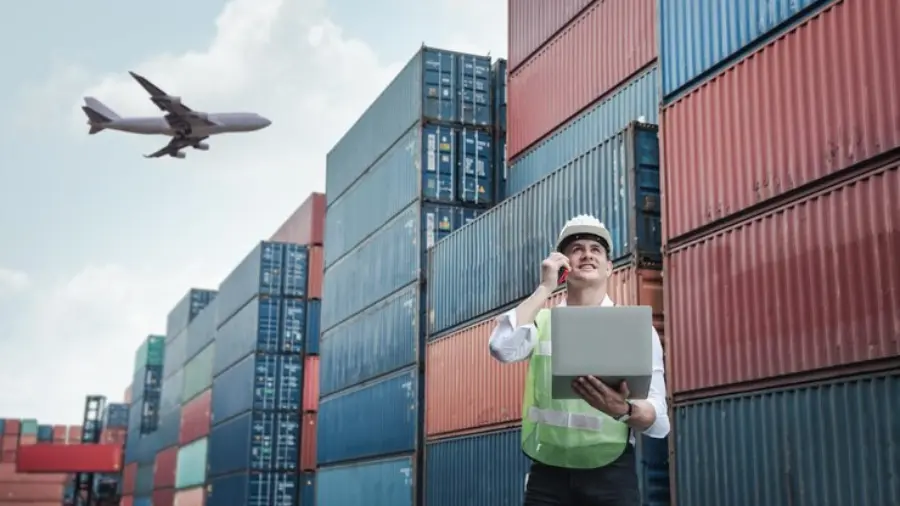
Can a Freight Forwarder be the Exporter of Record?
Freight Forwarding
Exporter of Record (EOR)

One of the most common questions businesses face in international trade is: Can a freight forwarder be the Exporter of Record (EOR)? While these two roles often work seamlessly together, they are not always interchangeable. Understanding the differences between a freight forwarder and an exporter of record is critical for ensuring compliance and efficiency in the export process.
In this blog, we will explore the key distinctions between the Freight forwarder vs. exporter of record, delve into their respective responsibilities in the export process, and answer the important question: Can a freight forwarder act as the Exporter of Record?
Freight Forwarder vs. Exporter of Record
Freight forwarders and Exporters of Record (EOR) play distinct but complementary roles in international trade. For companies looking to optimize import and export operations, it’s vital to understand how each works — and whether a freight forwarder can also act as the EOR.
Who is the Freight Forwarder?
A freight forwarding provider acts as an intermediary that manages the movement of goods on behalf of businesses. While they do not own the cargo, they coordinate logistics and supporting documentation to ensure shipments move smoothly across international borders.
Typical freight forwarder responsibilities include:
- Document Management
Commercial invoice documentation, official bills of lading, and required customs forms
Carrier Selection
Selecting the most suitable transportation mode for each shipment—whether by air, sea, rail, or road.
- Shipment TrackingMonitoring goods during storage, transit, and delivery
- Freight NegotiationsSecuring competitive shipping rates
- InsuranceArranging cargo insurance and filing claims if goods are lost or damaged
In short, freight forwarders facilitate the logistics coordination behind international shipments but don’t take on legal responsibility for the export itself.
Who is The Exporter of Record?
An Exporter of Record (EOR) acting as the legally accountable party is responsible for ensuring that goods leave a country in compliance with local and international laws. Unlike freight forwarders, the EOR carries full legal accountability for the export.
Typical EOR responsibilities include:
- Export ClearanceSecuring permits and filing export declarations
- Product Valuation & Classification
Assigning the correct HS-based product classification and declaring accurate values
- Record KeepingMaintaining invoices, declarations, and permits for audits
- Expense ManagementHandling unexpected costs like customs fees or taxes
- Regulatory ComplianceEnsuring shipments meet export control laws and sanctions rules
The EOR is legally liable if anything goes wrong in the export process.
Key differences between Freight Forwarder and Exporter of Record
Aspect | Freight Forwarder | Exporter of Record (EOR) |
|---|---|---|
Primary Role | Manages logistics and transportation | Ensures full legal export compliance |
Responsibility | Coordinates shipments, optimizes routes, and books carriers | Takes legal responsibility for export documentation and permits |
Legal Compliance | Not legally accountable for export laws | Fully responsible for meeting export and trade compliance obligations |
Focus Area | Transportation, scheduling, cargo handling | Export licenses, formal customs declaration requirements, and sanctions compliance |
Expertise | Logistics, routing, customs brokerage | International trade law, compliance, export regulations |
Can a Freight Forwarder Act as an Exporter of Record?
In most cases, freight forwarders cannot act as the Exporter of Record (EOR). The EOR carries the legal responsibility for compliance, permits, and customs filings, while freight forwarders focus on logistics and transportation.
Some providers now offer combined solutions, acting as both freight forwarder and EOR to simplify compliance and shipping under one service. However, it’s important to understand the distinction between the exporter, shipper, and consignor— the shipper physically moves the goods, while the EOR ensures the export is legally authorized.
The EOR is often the owner of the goods, but it can also be a licensed third-party service provider (such as a customs broker or logistics company) appointed by the owner. The key is that the EOR must have the necessary knowledge and authority to meet all legal requirements involved in exporting goods.
Yes, a freight forwarder can issue a Forwarder’s Bill of Lading (FBL). This document confirms receipt of cargo from the shipper and acts as a contract between the shipper and the forwarder. Unlike the Master Bill of Lading issued by the carrier, the FBL is especially useful in consolidated shipments and multi-party transactions, ensuring legal compliance and protecting the interests of all parties involved.
